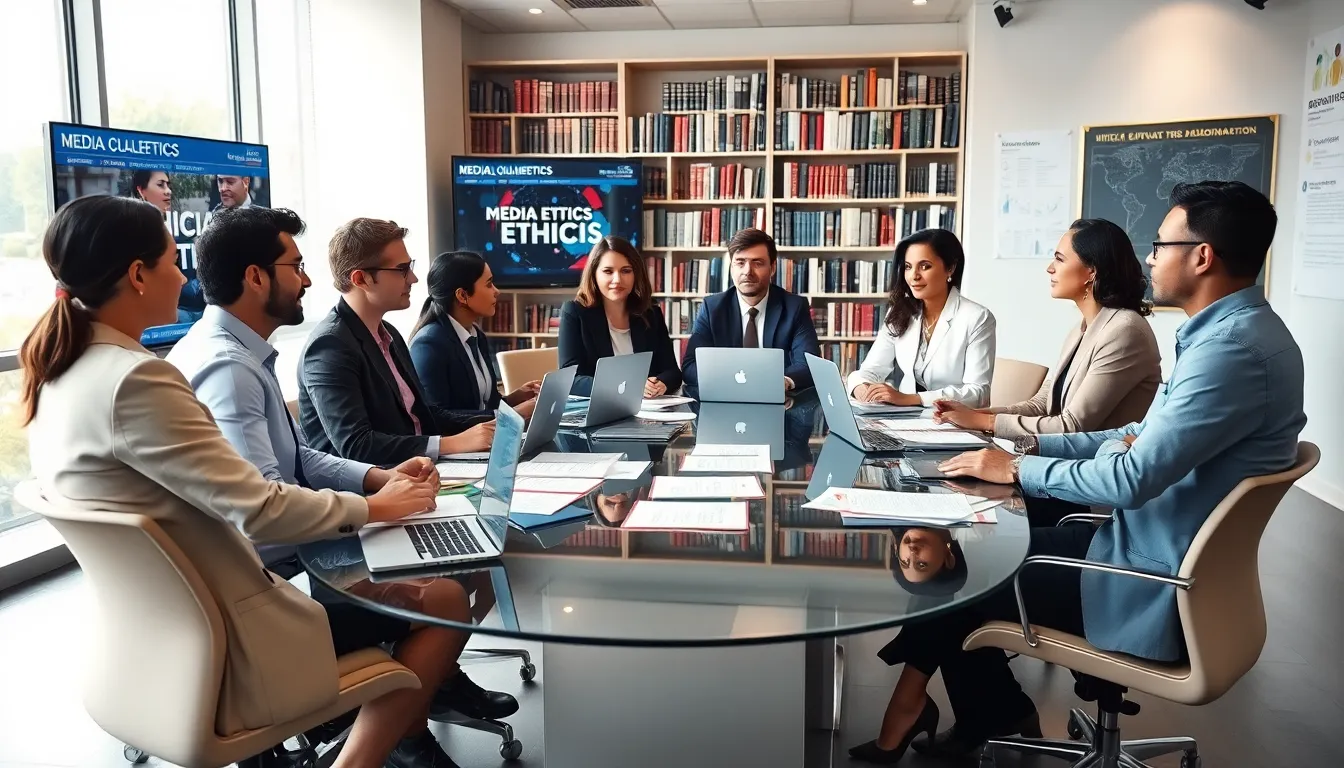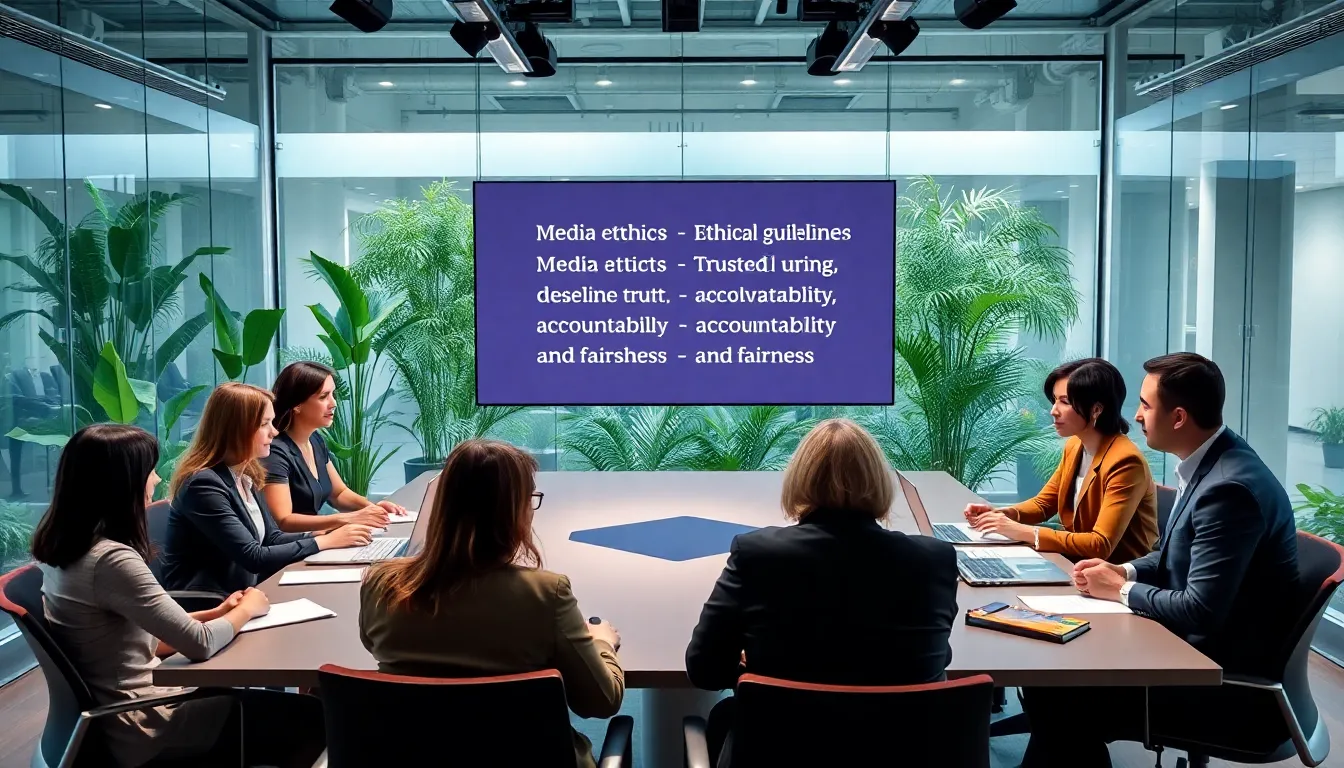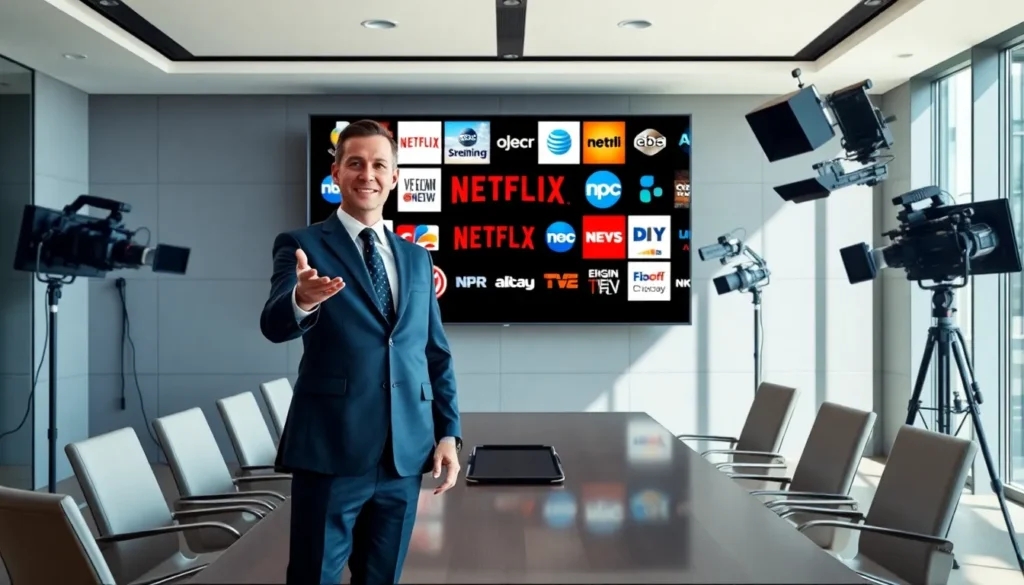Table of Contents
ToggleIn a world overflowing with information, how does one sift through the chaos and find the truth? Welcome to the realm of media ethics, the compass that guides the ship of modern journalism through stormy seas of misinformation and bias. Think of it as the Jedi code for journalists, except there’s no lightsaber involved, just a commitment to honesty and integrity. So, buckle up as we explore why media ethics is not just important: it’s vital for the survival of a well-informed society.
The Importance of Media Ethics

Media ethics plays a crucial role in the world of journalism and communication. It ensures that the information disseminated to the public meets certain standards of truthfulness, accuracy, and respect for privacy. In an era dominated by social media and instant news, ethical media serves as a guardrail, holding journalists accountable for the content they deliver. Without these ethics, readers might fall prey to false narratives, which can lead to societal harm. Journalists must ensure that their work contributes positively to public discourse rather than spreading confusion or misinformation.
Also, the respect for media ethics helps to build trust with the audience. When people know that broadcasters, reporters, and writers adhere to a core set of ethical guidelines, they are more likely to engage with the content and rely on it for their information needs. So, media ethics is not just an abstract concept but a fundamental pillar of a well-functioning democracy.
Historical Context of Media Ethics
Understanding media ethics requires a glance back into history. The origins of media ethics can be traced to the inception of journalism itself. As newspapers began to flourish in the 17th century, so too did the need for responsible reporting. With the advent of yellow journalism in the late 19th century, society witnessed the dangers of sensationalism, leading to a growing demand for ethical reporting standards.
The establishment of the Society of Professional Journalists (SPJ) in 1909 marked a significant milestone in the formalization of ethical codes. The SPJ created a set of guidelines focusing on truth, fairness, and independence, which laid the groundwork for other journalism organizations worldwide. Fast forward to today, and these principles continue to evolve in response to the rise of digital media and the challenges associated with it.
Fundamental Principles of Media Ethics
The foundation of media ethics is built on several fundamental principles that guide journalists in their everyday reporting. These principles include:
Truth and Accuracy
At the heart of journalism lies the commitment to truth and accuracy. Journalists must verify facts and provide clear contexts, ensuring they don’t mislead the public.
Independence
Media professionals should remain independent of outside influences and conflicts of interest. Whether it’s a corporate sponsor or political agenda, transparency is essential in maintaining credibility with the audience.
Fairness and Impartiality
Every journalist must strive to present all sides of a story without favoritism, providing a balanced view that allows audiences to form their own opinions.
Accountability
When errors do occur, journalists must admit their mistakes and correct them transparently. Accountability fosters trust and sets a better example for future reporting.
Respect for Privacy
While the public has a right to know, individuals also have a right to privacy. Journalists must navigate the delicate balance between public interest and personal boundaries.
Challenges in Upholding Media Ethics
Even though the well-defined principles of media ethics, journalists face numerous challenges in upholding these standards. One significant issue is the pressure to produce content quickly due to the 24-hour news cycle. This urgency can lead to lapses in fact-checking and accountability, resulting in misinformation being published.
Another challenge comes from social media, where misinformation spreads like wildfire. Journalists often find themselves battling entrenched narratives that can overshadow factual reporting. The lack of editorial control on platforms like Twitter and Facebook complicates the ethical landscape, as fake news often masquerades as legitimate stories.
Also, there’s the challenge of bias. All journalists bring their perspectives to the table, and navigating these personal biases while aiming for impartiality can be a challenging job. The spectrum of political bias in media can further erode trust if audiences feel they are not being presented with unbiased information.
The Role of Technology in Media Ethics
Technology has dramatically transformed the landscape of media ethics. With the rise of citizen journalism and social media platforms, everyone now has a voice. While this democratization of information can empower ordinary people, it also raises questions about accountability and the reliability of sources.
Algorithms and artificial intelligence play an increasingly significant role in how information is presented, making it imperative for media organizations to ensure that they are not amplifying misinformation through their platforms. As news cycles accelerate, technology also facilitates real-time fact-checking, enabling journalists to distinguish between credible sources and fake news more efficiently.
Besides, the integration of multimedia and data journalism has expanded the methods journalists can use to present ethical, accurate information. Visual storytelling can engage audiences in profound ways, but media professionals must remain vigilant in ensuring these tools serve the truth rather than distort it.
Case Studies in Media Ethics
Examining case studies helps illuminate the ethical dilemmas faced by journalists. One notable example is the reporting on the Watergate scandal in the 1970s. Bob Woodward and Carl Bernstein of The Washington Post showcased the importance of investigative journalism underpinned by a commitment to ethical reporting. Their groundbreaking work revealed critical truths about government misconduct even though significant pushback, proving that ethical journalism can make a difference.
In contrast, the coverage of the 2003 Iraq War highlights the potential dangers of media ethics. Many outlets faced criticism for allowing government narratives to dominate their reporting rather than adopting a critical perspective. This instance serves as a cautionary tale of what can happen when ethical standards falter, leading to widespread misinformation.




